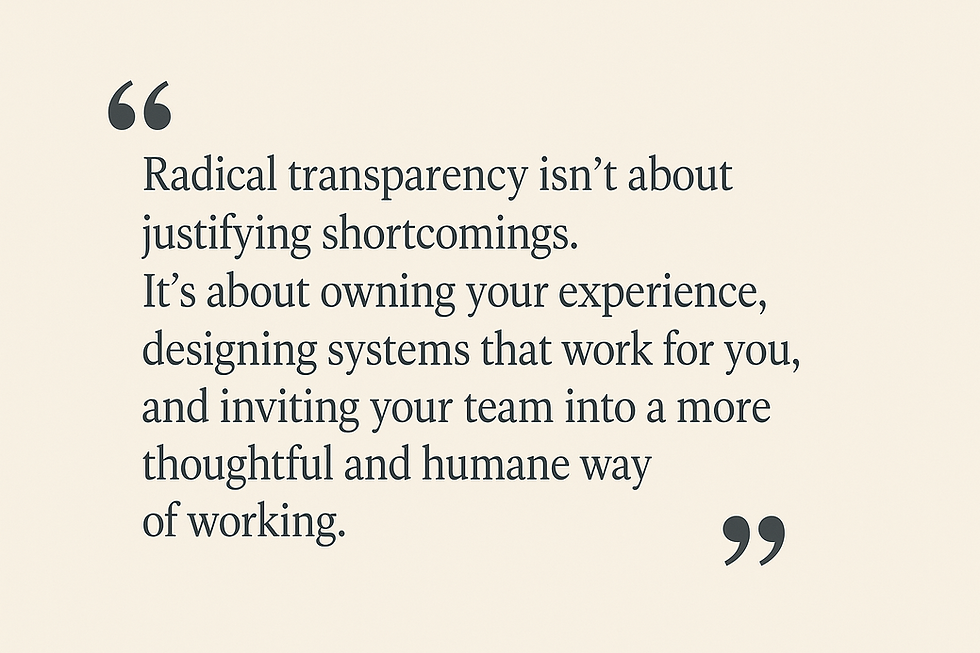7 Sales Myths I’ve Seen Get in the Way (From Someone Who Doesn’t Sell)
- Timothy Gallant
- Jul 19, 2025
- 3 min read

I don’t carry a quota. I’m not in the trenches making cold calls or chasing down contracts. But I work closely with an amazing sales teams, and if there’s one thing I’ve learned, it’s that selling well is a craft.
I’ve also seen how easy it is for outdated ideas about sales to linger, passed down from old playbooks, motivational posters, or that one manager who still swears by “always be closing.”
So, from the outside looking in, here are seven myths I’ve watched real sales pros quietly debunk every day.
“The product sells itself.”
This one comes up all the time, especially from folks who aren’t in sales (guilty). The truth? Products don’t sell themselves—people do. And more than that, people sell clarity.
The best reps don’t just explain features. They surface the customer’s real problem, quantify what’s at stake, and show exactly how the product solves that pain. They sell urgency, risk, and potential—all things a product can’t communicate on its own.
“Sales is a numbers game.”
Yes, effort matters. But I’ve seen firsthand how some of the most successful reps aren’t the ones making the most calls—they’re the ones making the right calls.
They think strategically. They prioritize leads wisely. They don’t just grind through the day, they leverage their time, tools, and team to make sure every move counts.
It’s not brute force. It’s thoughtful execution.
“Always be closing.”
This one’s practically a punchline at this point. The reps I admire most don’t push people into buying, they qualify carefully, ask great questions, and help the customer come to the conclusion themselves.
Closing isn’t a magic line or a high-pressure tactic—it’s the result of a conversation where everything aligns. I’ve seen how natural the close feels when the rep and client both know it’s the right fit.
“Just follow the script.”
Scripts are a safety net. But real conversations aren’t scripted—and the best salespeople I know never sound like they’re reading.
Instead, they’re tuned in. They’re adaptive. They make the person on the other end feel heard. Great sales, like great service or support, is about responsiveness, not recitation.
“Buyers care about features.”
You’d think so, especially if you’ve ever sat in a product meeting where everyone’s excited about new bells and whistles. But what I’ve seen is that the best reps quickly pivot away from the feature list and focus on outcomes.
They know that customers aren’t buying functionality, they’re buying progress. They want relief from a problem, not a user manual.
“You need to build rapport first.”
Rapport helps—but it’s not everything. I’ve watched top sellers connect with clients not because they cracked a joke or remembered a birthday, but because they were prepared, insightful, and respected the client’s time.
Warmth matters. But relevance builds trust faster.
“The best reps are extroverts.”
This one might surprise people outside of sales. We imagine reps as big personalities—talkative, outgoing, persuasive. But some of the most effective people I’ve worked with are quiet, methodical, and extremely observant.
They don’t win by dominating the conversation. They win by listening, synthesizing, and guiding.
What I’ve Learned Watching Great Salespeople Work
I may not sell directly, but I see what good sales looks like—and what it doesn’t.
The best sellers aren’t pushy. They’re not slick. They don’t rely on tired tactics or recycled lines. They’re clear, strategic, and deeply human in how they show up.
Sales done well is a service. It solves problems, builds trust, and creates momentum. And when you see it in action, it’s honestly pretty inspiring.




Comments